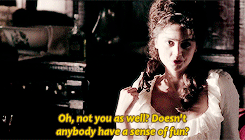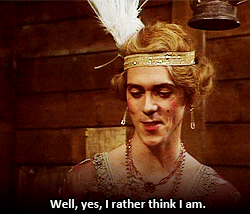I want to talk about more than just the story of
The Castle of Wolfenbach. Perhaps I really have focused too much on the stories, on the simple joy of reading them, and not said enough about why these stories are important. I'm going to correct that now. Strap in.
It has been nearly two weeks since Elliot Rodger killed people in Isla Vista, blaming women for his actions. In his manifesto he barely gives any detail to women. They are nameless and faceless. On
the forum that he frequented, PUA Hate, women were discussed objects to be used, that if the woman was not a virgin she should have sex with any man who wants it from her. The response from women to these murders has been huge, from
#YesAllWomen on Twitter to
When Women Refuse, a website cataloging instances of violence against women who refuse male advances. You probably know all of this.
You also probably know about
Bring Back Our Girls. That school girls were abducted in Nigeria by men who hate the idea of educating women. That the response from the Nigerian government has been despicably slow. That these girls are being sold as wives for $12.
So what does all this have to do with the Gothic novel?
The line in the title of this post is from
Castle of Wolfenbach. The wretched victim is, of course, a woman. The heroine, the lady with the fatigue at the
beginning of the story, has fainted already. She has also escaped an uncle who intended to rape her, entered supposedly haunted chambers no one else dared to, and volunteered to move the bloody body of a woman who had her throat slit when the elderly servant was not sure he could lift the body on his own. It is a story of a young woman fighting to control her own life and escape the man who feels he is entitled to her. Gothic novels are about women, violence against women, and the heroine's ultimately successful escape from the control of men who would hurt her or force her into sex and marriage against her will. They are among the first responses of women against male entitlement to women's bodies.
The heroine is usually an orphan or otherwise considered unprotected by society at that time. She does not kick ass. She does not take on male attributes to win the fight the way modern heroines do. (I do like modern heroines too, but it does seem that in modern stories women are only seen as strong if they are as violent and unemotional as traditional male heroes. Rambo with boobs.) Gothic heroines are still within the bounds of acceptable femininity of the time, and I make fun of the fainting fits, but in these stories being emotional is not considered a weakness, but a virtue. They may faint and cry every other page, but this does not stop them from being resourceful and determined, using the abilities they have to find friends and escape tyranny. And above all, they are brave. They stand up for themselves, even when threatened with death, and they never doubt that they will eventually escape and all will end well.
We've all talked or heard about how the literary canon is skewed towards men. Reading gothic novels is part of the reclamation of female literature. Of the 9 novels mentioned in
Northanger Abbey 6 are written by women. Yes, they are adventures and meant for a mass audience, which is usually frowned upon by literary establishment anyway, but so were the works of Sir Walter Scott, Charles Dickens, James Fennimore Cooper, and Mark Twain and they made it into commonly known literature. These women writers are as good as their male counterparts. So why the difference? I don't think it is just because the writers are women. After all, there are some women writers just as well known. I think it has more to do with telling women's stories. Gothic novels are the stories of captives who escape. The stories we commonly regard as literature are stories of men's adventures. If there is a woman, she is the captive to be rescued by the hero. Even the female authors who make literary canon tell stories of men or rescue by men. Austen has her intelligent and resourceful heroines use their talents to find a man to marry, and
Frankenstein is about a man.
If we are going to expand the canon, we are going to have to accept women writers for the stories they write, which are women's stories. Gothics are what women wrote about being a woman, with the horror of losing control of your own life, though that is made more palatable by the fun story and adventure. They are good stories. They are well written stories. They are stories we need to read as literature and not just for the purpose of reading women's writings as an attempt to be inclusive. "Women's literature" is its own way of making those writings second class.
As a reader and a writer I believe art is important. Until we believe adventure stories of women who rescue themselves--which is not a new or modern phenomenon-- are as important as adventure stories of men rescuing women, we will not, as a culture, begin that deep, ingrained transformation that needs to happen. Gothics are good stories and worth reading. Let's read them and enjoy them as if they are as good and important as they really are.

































